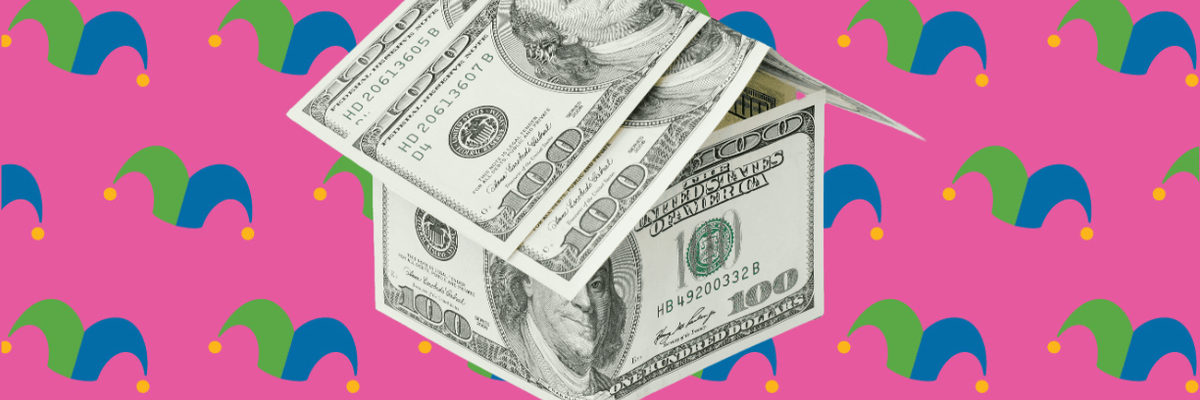Is It Worth It to Make Just 1 Extra Payment a Year on Your 30-Year Mortgage?
KEY POINTS
- If you pay half your monthly mortgage every two weeks, you'll make an extra mortgage payment each year.
- Paying extra on your mortgage can save you thousands of dollars in interest over the life of your home loan.
- Depending on your mortgage rate, it might make more sense to invest rather than pay extra.
If you own a home, you've probably heard the age-old advice to pay more on your mortgage so you can pay it off faster. But what happens when you don't have thousands extra to throw at your mortgage each month?
There's a really simple way to pay a little extra -- by making mortgage payments every two weeks. Don't worry, you're not doubling your costs! Instead, you pay half your mortgage payment each time. It's a great strategy for sticking to a budget since many jobs pay every two weeks. And, because there are 52 weeks in a year, you'll actually make 26 half payments in a year. That's 13 full payments each year instead of 12.
But is paying just a little bit extra worth it? It might be.
Making an extra mortgage payment can save thousands in interest
Paying even a little more toward your mortgage can shorten the life of the loan and save you money. But how much? Let's say you purchased a $400,000 home in 2020 when interest rates were around 4%. We're also going to assume you were able to save up 20% and make a down payment of $80,000, so your total loan balance was $320,000.
If you made regular payments (meaning one a month, so 12 in a year), you'd pay off your loan in 30 years and pay a total of $229,982 in interest.
If you made 13 payments in a year, you'd pay the loan off in 25 years and 11 months, and pay $193,382 in interest. You'd save $36,600 in interest over the life of your loan.
12 vs. 13 monthly mortgage payments on $320,000 loan at 4% interest
| Payment frequency | Monthly payment | Total interest paid | Loan term | Interest savings |
|---|---|---|---|---|
| Every month | $1,528 | $229,982 | 30 Years | $0 |
| Every two weeks | $1,656 | $193,382 | 25 Years 11 Months | $36,600 |
If you bought a home more recently with higher mortgage rates, you could save even more.
We'll start with the same assumptions: a $400,000 house, 20% down, 30-year loan, with a loan balance of $320,000 but a 7% interest rate. If you make 12 mortgage payments a year, you'll pay $446,428 in interest over the life of the loan, which is more than the house cost.
If you make 13 mortgage payments a month, you'll pay $333,425 in interest and pay off the home in 23 years and 8 months. That is a massive amount of savings just by making 1 extra mortgage payment a year.
12 vs. 13 monthly mortgage payments on $320,000 loan at 7% interest
| Payment frequency | Monthly payment | Total interest paid | Loan term | Interest savings |
|---|---|---|---|---|
| Every month | $2,129 | $446,428 | 30 Years | $0 |
| Every two weeks | $2,309 | $333,425 | 23 Years 8 Months | $113,003 |
If you have a low interest rate, your money might make more elsewhere
Why wouldn't you want to pay your mortgage off faster? Well, if you have a low interest rate from a few years back, it might make more sense to invest that extra mortgage payment. Right now, high-yield savings accounts are offering interest rates between 4% and 5%.
There's an argument for putting that extra mortgage payment into a savings account or investing it instead. Certificates of deposit (CDs) or investments might pay even more than a savings account. It may not make as much sense to pay off that low-interest mortgage when that money could earn you more elsewhere.
Consider your financial situation when deciding whether to pay more on your mortgage
If your mortgage interest rate is above 6% or 7%, it likely does make sense to make an extra mortgage payment every year. You'll save thousands of dollars in interest and pay your mortgage off much faster. But if you were lucky enough to lock in a low mortgage rate, consider investing that extra money instead.
Our Research Expert




